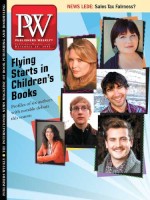In his collection of travel essays Here, There, Elsewhere: Stories from the Road, William Least Heat-Moon strikes out for destinations unknown, continuing the odyssey he started in 1982 with Blue Highways.
You write about unglamorous locales, industrial waterways, even Kansas. What draws you to places like that?
I get bored with hearing again and again about Hollywood, Manhattan, or even downtown Pittsburgh. Going to blank spots on the map gives me total freedom to present them to a reading public—it’s uncharted territory, wide open.
You also explore more exotic climes like Japan and the Mayan Yucatan. How difficult is it to penetrate the strangeness of such unfamiliar places?
In those places I really needed a guide. To a degree, the Japanese piece is about my relationship with my guide, Tadashi. I was born just before World War II and he was born during the war, in Nagasaki. The war is a key part of our lives, our memories, of the men we’ve become. Growing up, I was taught that the Japanese have green blood; being able to break down those errors and see a man that I ended up having a lifelong friendship with, that’s a crucial thing.
You visited William Faulkner’s home during college. How did the real Lafayette County, Miss., stack up against the fictional Yoknapatawpha County?
It matched up with my imagination very nicely. I was then so full of Faulkner and so moved by his writing—it was the perfect time to go. Things like the Confederate statue in Oxford, Miss., appeared exactly as he presented them. I met one of his characters, Uncle Buddy, and had a cup of branch water and bourbon with him. Faulkner didn’t make these things up; he just imported them into his mythology.
What’s the worst cuisine you encountered on your travels?
In England I decided that I needed to try black pudding. The key ingredient is blood. I couldn’t finish it. That was the worst, and that includes eating dog and anteater in China.
Your Native American heritage figures into your writing. Does that tradition have a different sense of place than that of mainstream American culture?
I think so, because it comes deeply laced with ethical and moral considerations. I’m in my office now, and if I look out into the woods I see a moral statement about the way the world is—and should be. In a city or a mall, I’m immediately aware that the way we’re handling the land, and the economics of that, is misguided. There’s a conflict in me between loving the Empire State Building and thinking that it’s not good for humans to build something like that—to be so removed from the land. It’s an approach-avoidance conflict, a psychiatrist might say.



 Volume 259
Issue 52
12/24/2012
Volume 259
Issue 52
12/24/2012





